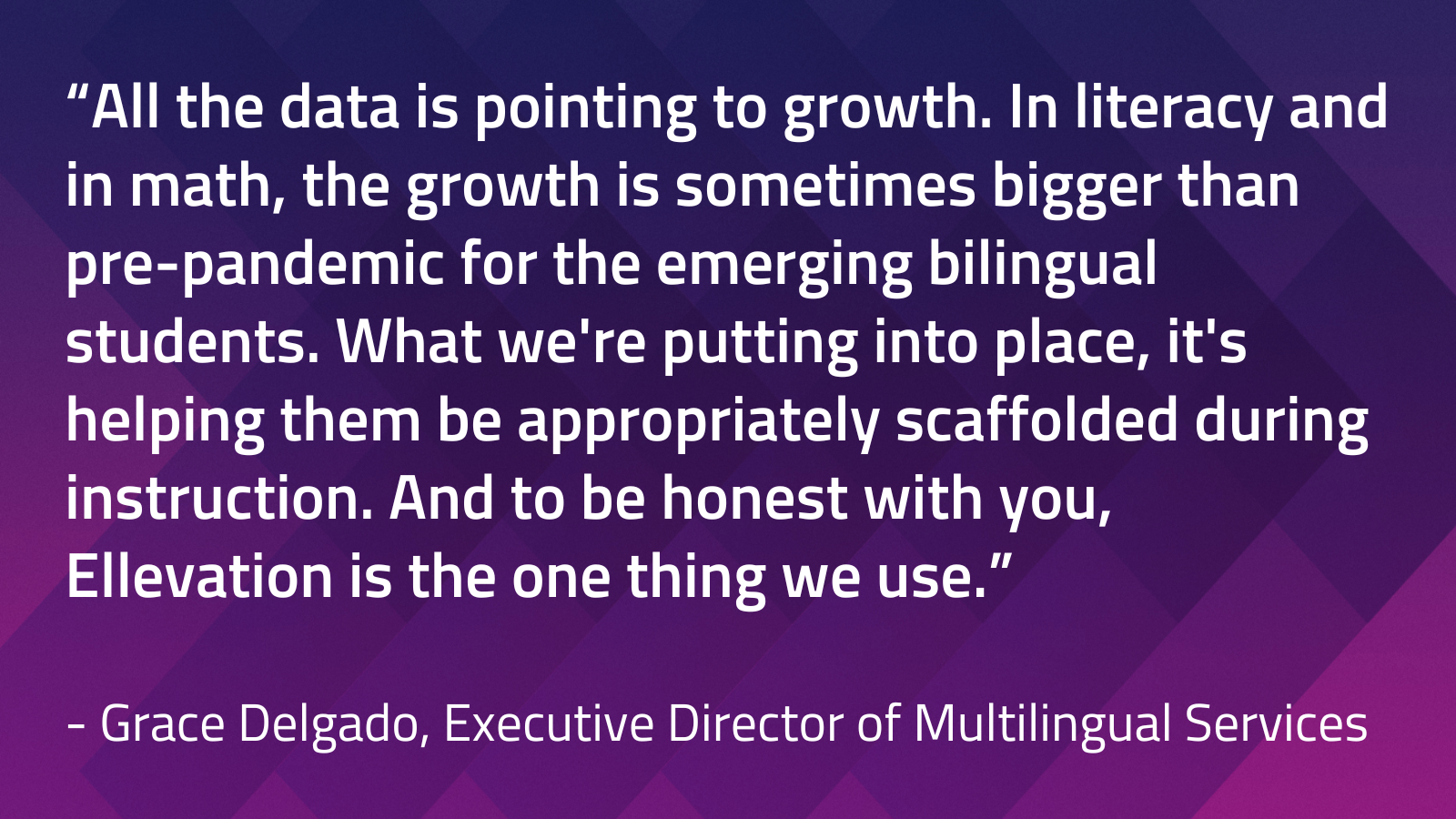See how Ellevation's unified ELD solution can drive student growth. Register now for our webinar on February 18.
Aldine ISD: Creating a positive culture of professional learning to improve outcomes for ELs
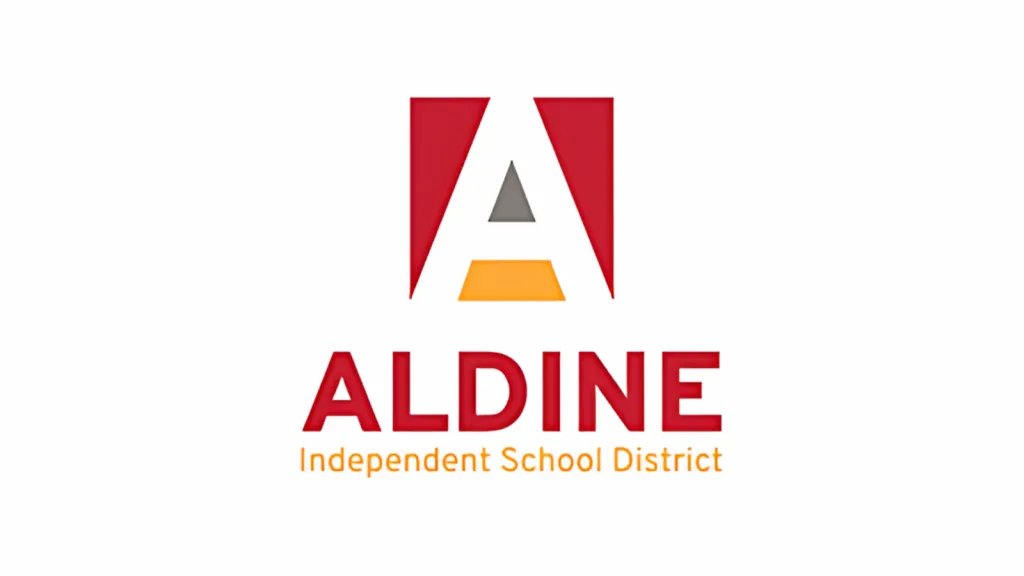

Aldine ISD: Creating a positive culture of professional learning to improve outcomes for ELs
Ready to reimagine their approach
Aldine ISD in Houston, TX serves a student population rich with cultural and linguistic diversity. Like most schools across the country, they found COVID remote learning to most significantly impact their Emergent Bilingual or EB (commonly referred to as English Learners in other states) students. During remote learning, educators found that students were less engaged during lessons, and testing revealed severe gaps in their Emergent Bilingual student data.
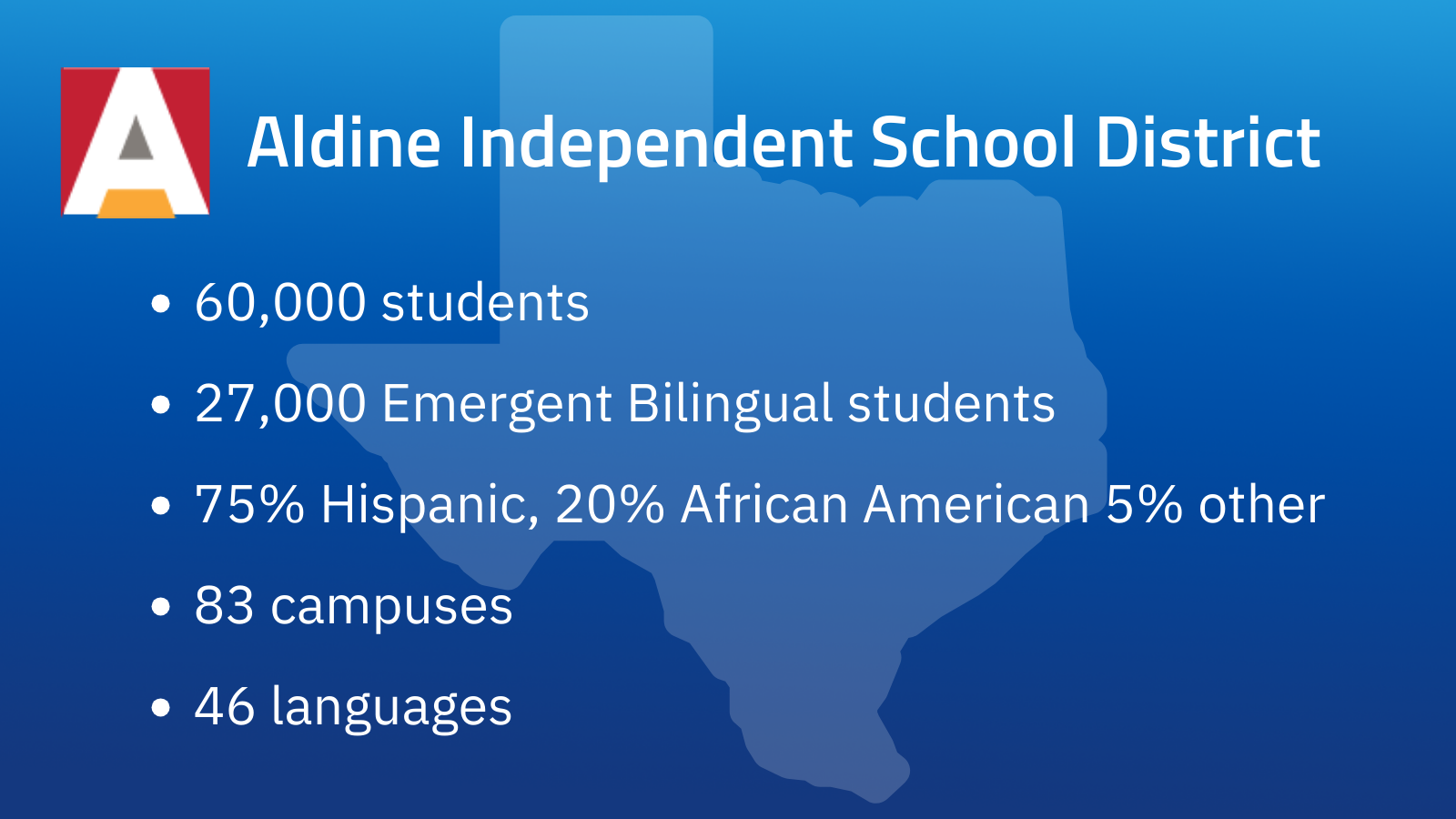
When everyone returned to campus, teachers were eager to address these growing gaps with their Emergent Bilingual students, but they lacked the right resources or structures to effectively improve instruction and student outcomes under these new circumstances.
Grace Delgado, Executive Director of Multilingual Services in Aldine ISD, explains the disconnect: “We've always heard from our teachers that whenever they're in sessions and receiving professional development for multilingual learners, that the strategies are great, but then how do they transform that into the classroom?”
The district knew they needed to reimagine their approach to meet the dynamic language needs of their students.
“We created a multilingual vision framework,” shares Delgado. “We needed to make sure that we had strategies in place that were not only engaging, but were targeted for language. So we decided to start working with Ellevation.”
Building buy-in during implementation
Delgado and her team were diligent when rolling out Ellevation Strategies to avoid overwhelming the staff, and instead demonstrated the value-add to the curriculum their educators were already using. This was done through a structured approach.
“Instead of saying, ‘Teachers, here's the program, there's 108 strategies, you can pick whichever one you want,’ we said, ‘Here's a unit and these are two great Ellevation Strategies that you can use with your students.’ So we took those small size bites,” Delgado explains.
Aldine consistently offered professional development on Strategies through Ellevation-led training or by embedding learning opportunities into district PD days. They also utilized their district coaches to support teachers more directly, through coaching, modeling the strategies in practice, or co-planning lessons.
Alvaro Canales, an ESL Instructional Specialist, was excited to have a solution to share with teachers that they could easily implement in their classrooms: “Teachers would all say to me, ‘I know I need to help my Emergent Bilingual students, but I don't know how, and I don't teach English. How do I incorporate writing into my class?’ Showing them Strategies with the activities and clear directions has been very helpful, especially the different content examples because the teachers immediately start seeing how they can accommodate and adapt it for their classroom.”
In fact, Delgado shares that teachers even became a source of support for their peers in implementation: “We have seen how teachers have embraced it like, ‘Oh, we have these two strategies already suggested, but let me try these other two out.’ So we're now inviting teachers to provide training to other teachers so peers can see how those strategies are being implemented and embedded in the curriculum.”
Celebrating teachers who have embraced Strategies
Perhaps the most essential key to Aldine’s success has been equally emphasizing the “how” and the “why” of Strategies.
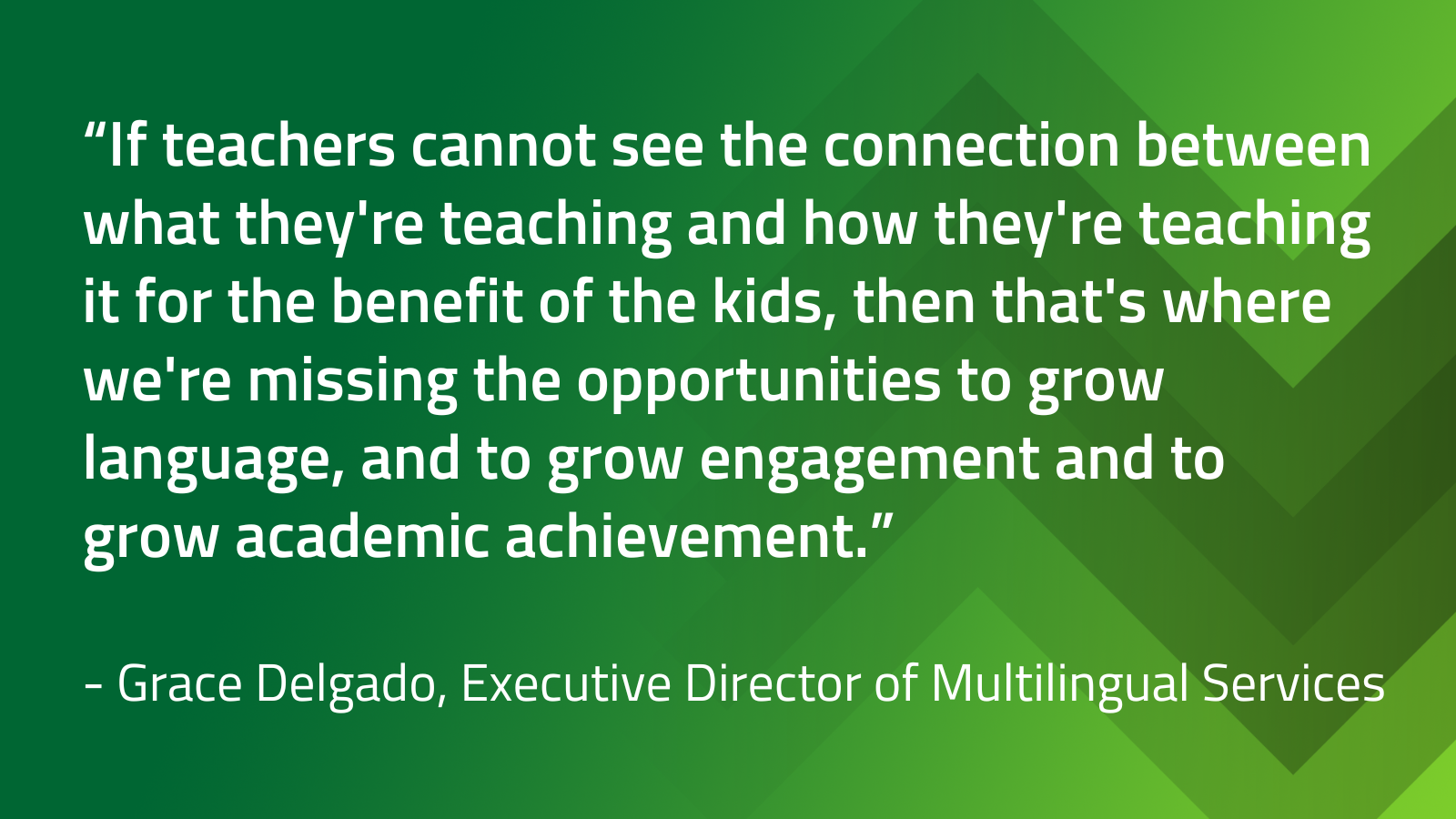
Aldine has been intentional in how they highlight teachers as they are finding success with Ellevation Strategies, and celebrating the impact they are making for their students, which in turn drives momentum and buy-in district wide.
Delgado has led these efforts: “My team is out visiting campuses and when we're seeing it, we're naming it, we're posting it, we're sharing it with other people, which is bringing up this excitement for the work and for other teachers to say, ‘Oh, wait, what is happening there? I want to learn more about it.’ Or for them to tell us, ‘Hey, I'm using this strategy here. Come see me too.’ That engagement is happening across the district. Everyone is excited, because it's practical and it's very actionable for us in the classroom.”
Their unique and intentional approach has created a truly positive culture of learning across the campuses.
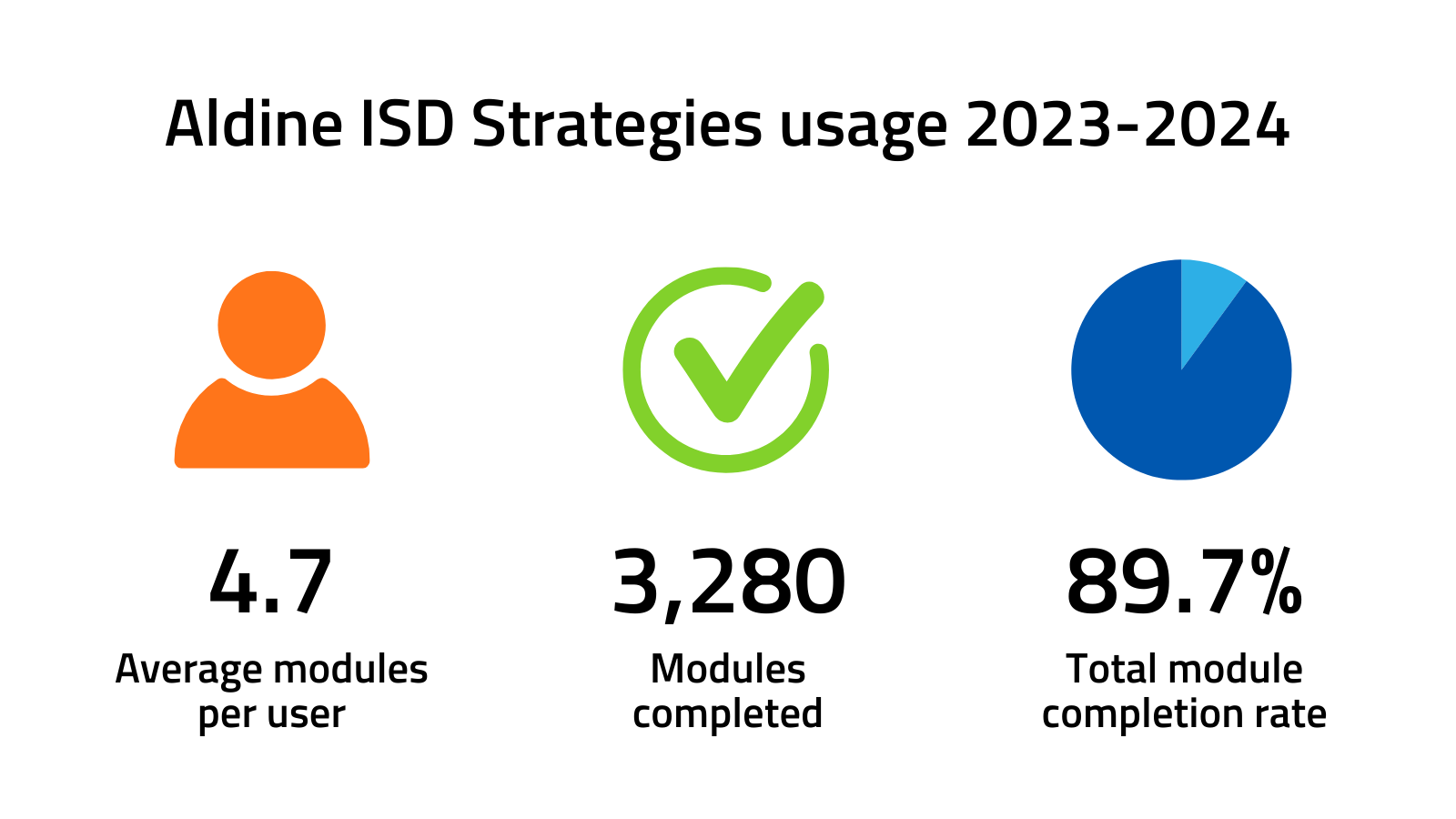
Improvements in student engagement, writing, and language growth
Aldine ISD is a perfect example of what can happen when a district identifies a gap, invests in a high-quality resource and provides robust support for implementation and usage. Their Emergent Bilingual students have shown a positive trajectory of engagement and language growth.
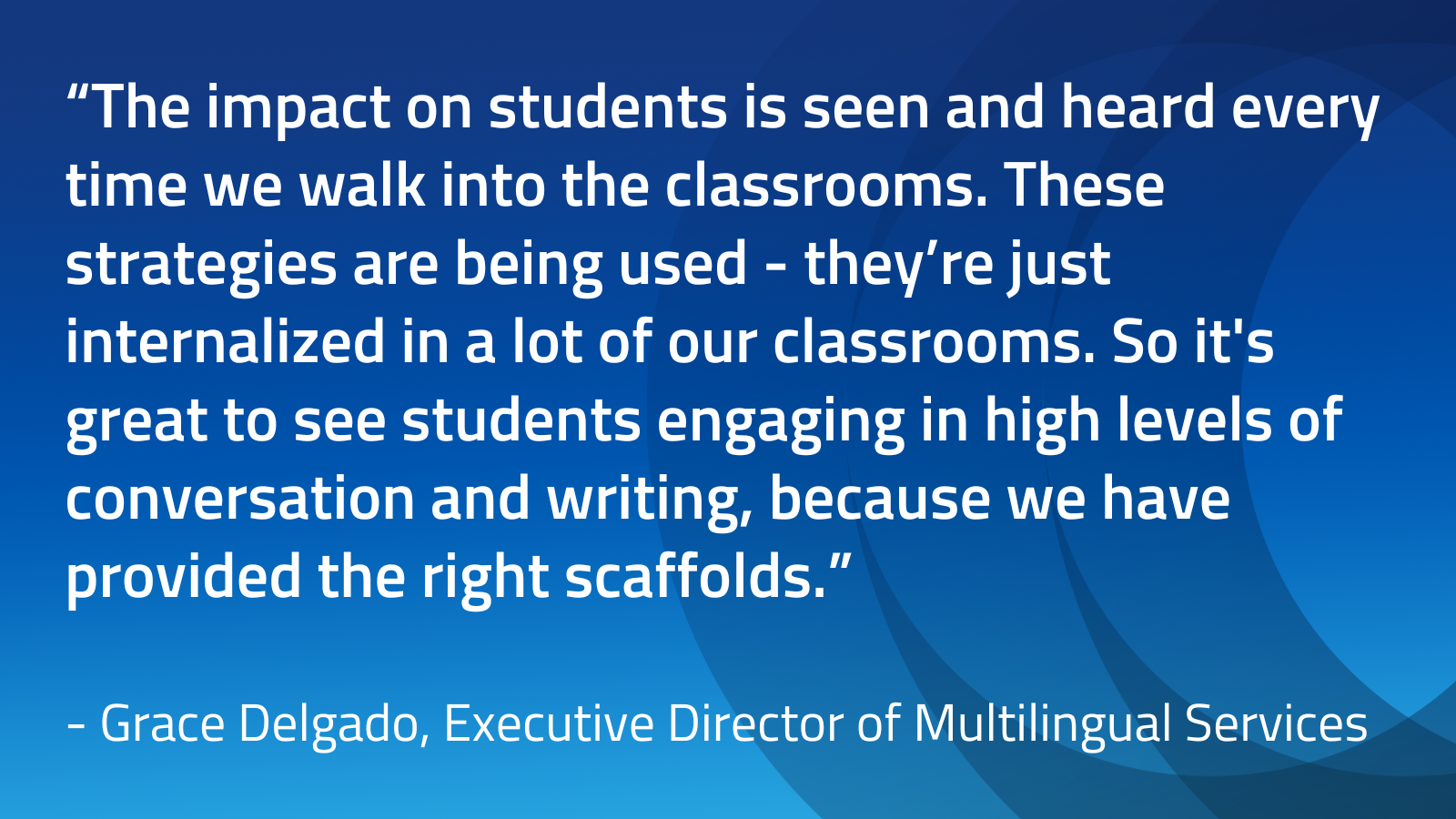
Yvonne Lopez Taylor, an elementary art teacher, has harnessed the tool to significantly improve writing and build confidence with the EBs in her art classes: “We don't have to reinvent the wheel. We just modify and adapt to our subject. And it's a tool to just build up that confidence. Through Strategies, I'm able to pull these answers from students and have them think even deeper than ‘I see red’ or ‘I see a girl;' they're building their vocabulary and their confidence at the same time.”
This school year, Aldine ISD has also begun using Ellevation Platform as a one-stop-shop for housing all of their student data, tracking compliance and reports, and connecting it all to linguistic accommodations. Between the increasingly differentiated and supported language instruction in class and the ability to track the data and accommodations in real time, Aldine has a good picture of how their robust efforts have impacted their Emergent Bilingual students.
